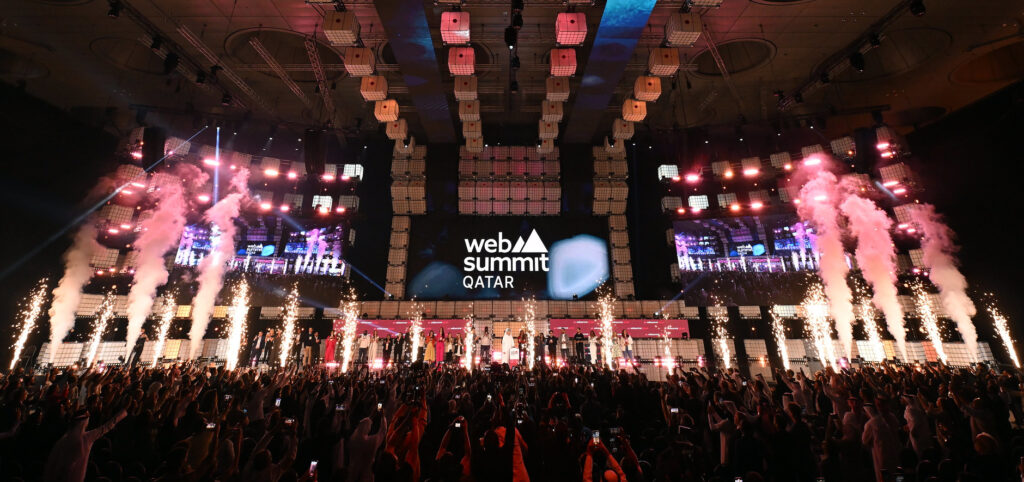
Here’s what you missed at Web Summit 2023
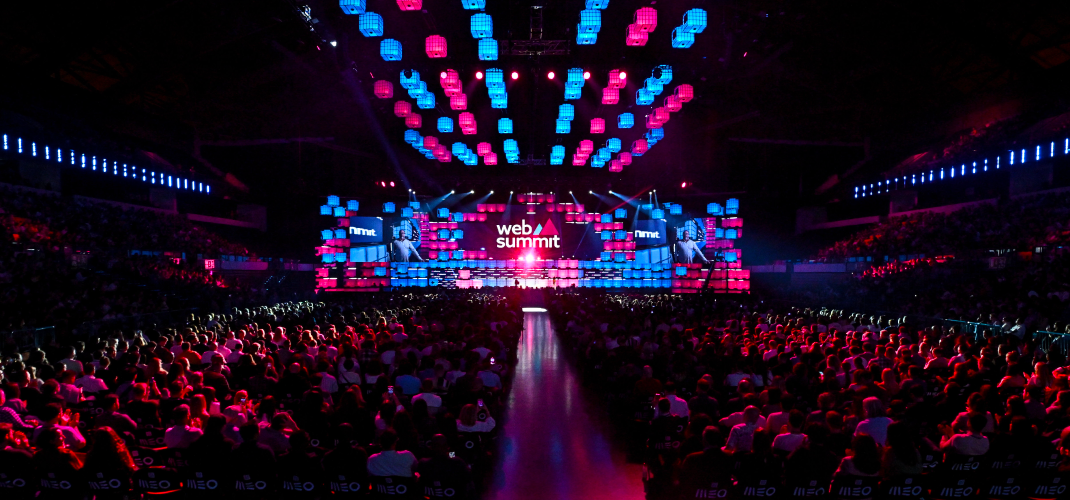
Did you miss out on Web Summit 2023? Here’s a roundup of just some of our highlights from the event in Lisbon.
It was another successful year in Lisbon, with 70,236 attendees from 153 countries converging on the Altice Arena. 43 percent of our attendees were women, as were 38 percent of our speakers.
It was a record year for startups, with 2,608 coming to meet some of our 906 investors. They were joined by 321 partners and more than 2,100 members of the media, offering an unprecedented opportunity for gaining exposure.
Our speakers discussed hundreds of content topics across our 16 stages. Here are some of the highlights.
Web Summit hosts ‘critical conversations about technology, society and innovation’
Speaking to an enthusiastic Opening Night crowd, Web Summit CEO Katherine Maher said that the event will continue to be a place that “brings together and connects people” while advancing important discussions at the intersection of technology and society.
This was Katherine’s first time on Centre Stage at the helm of Web Summit, having previously attended the event as a speaker.
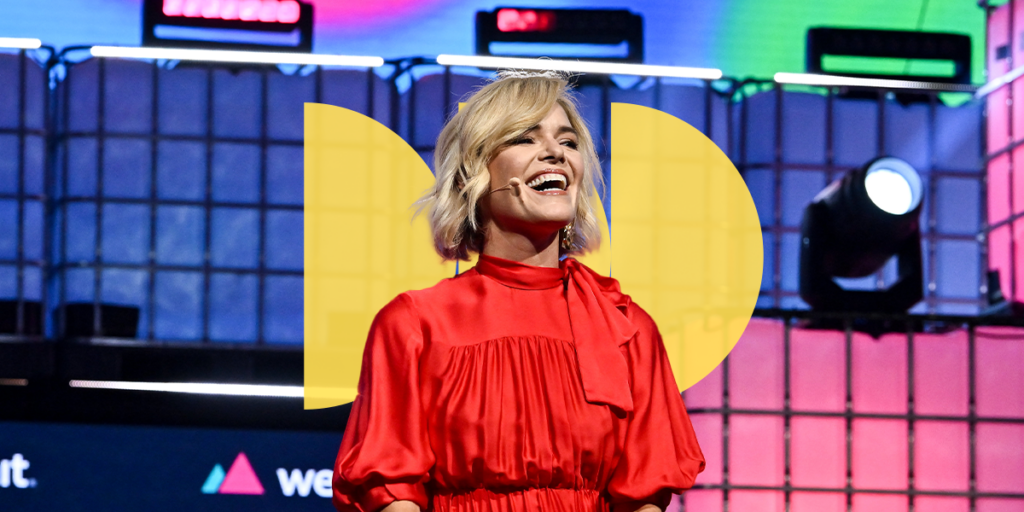 Web Summit CEO Katherine Maher. Image: Piaras Ó Mídheach/Web Summit (CC BY 2.0)
Web Summit CEO Katherine Maher. Image: Piaras Ó Mídheach/Web Summit (CC BY 2.0)“I was here as a speaker in 2019, astonished at the size of this crowd,” she said. “It was up here, on this stage, where I was able to really see Web Summit’s impact, and be inspired by its mission to connect people and ideas that change the world.”
Katherine went on to address the hopeful yet potentially divisive nature of rapid technological progress: “Web Summit’s role as a place for connection and community is more urgent than ever … It’s the only event where thousands of us meet to tackle these issues through the technology you build, the companies you found, and the ideas you champion.”
Is AI being used as a cover to erode workers’ rights?
AI isn’t so much replacing workers as providing employers with “a pretext to degrade the working conditions of the workers who are managing these AI systems,” said Signal president and ethical AI researcher Meredith Whittaker.
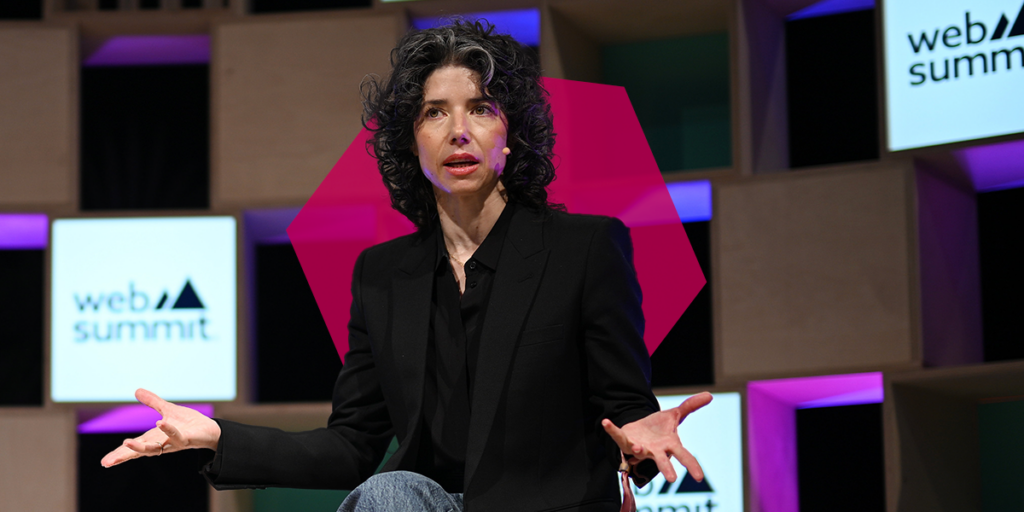 Signal president Meredith Whittaker. Image: Lukas Schulze/Web Summit (CC BY 2.0)
Signal president Meredith Whittaker. Image: Lukas Schulze/Web Summit (CC BY 2.0)Citing examples including Uber and the wider gig economy, the Signal president said that, while politicians and the general public were “distracted by the shiny promises of tech”, what was really happening was “the degradation of employment status across the globe”.
When it comes to fear of humans being replaced by technology, Meredith said, “we can’t talk about AI as an agency. AI isn’t doing this”.
“We need to be on the lookout for claims that AI is a magical technology that replaces workers, because that has not been borne out.”
Has Sonic come to life?
Sonic the Hedgehog is a film, television and video game star, and is as well-known to many people as any actor or celebrity. Soon, the blue blur might be stepping off the screen and into your life.
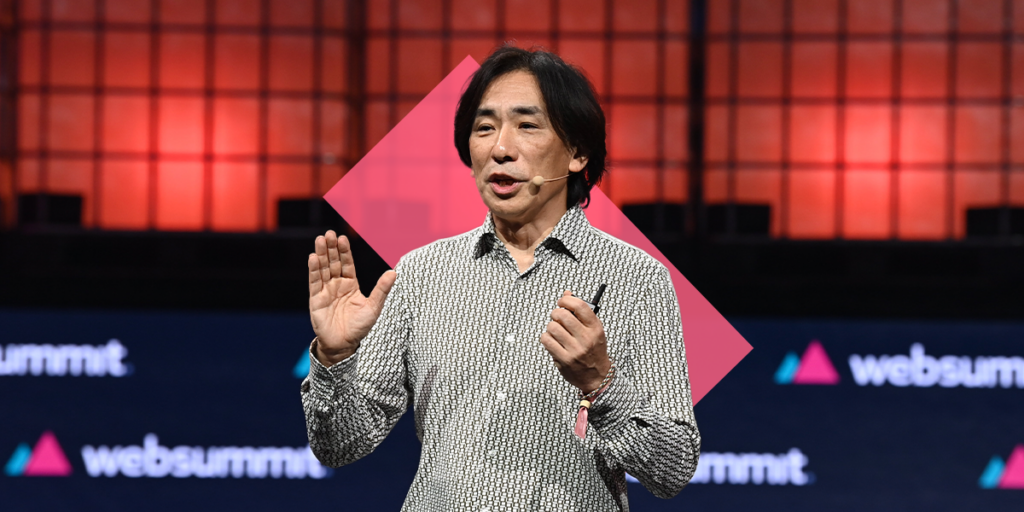 Sega COO Shuji Utsumi. Image: Sam Barnes/Web Summit (CC BY 2.0)
Sega COO Shuji Utsumi. Image: Sam Barnes/Web Summit (CC BY 2.0)“We’re planning to expand transmedia initiatives to our major IPs,” said Shuji Utsumi, Sega COO and keeper of the Sonic brand. “We firmly believe it plays an important role, allowing us to strategically expand the values of numerous IPs in innovative ways.”
Japan is a content pioneer, with gaming at the forefront. Nowhere is this witnessed more than in the world of ‘VTubers’ – Japan’s virtual gaming YouTube streamers who are breaking a new frontier by bringing gaming characters to life.
They use virtual, computer-generated avatars with real-time motion-to-capture technology for streaming.
Of the top VTubers, just 10 percent are actual real human beings. And it’s big business. “They’re some of the most-subbed and superchatted livestream influencers of both the real world and virtual,” said AKA Virtual CEO Jia Shen.
“In Japan, they’re now everywhere, appearing on TikTok, streaming platforms and live television. They’re so mainstream that you can find them in your local convenience stores adorning your favourite snacks,” Jia continued.
According to Jia, this is a trend that is also beginning to catch on in the West, particularly as younger audiences gravitate towards self-curation of their content diets on TikTok, YouTube and Twitch.
Technology also means that brands can now bring these VTube characters into the real world, and feature them in marketing and brand-based content creation.
Jia’s company has partnered with Sega to bring its stable of characters – including Sonic and the Street Fighters – off-console and into the real world.
Will machines save the planet?
Microsoft chief sustainability officer Melanie Nakagawa offered a vision of the near future – one in which AI can help us solve the climate crisis.
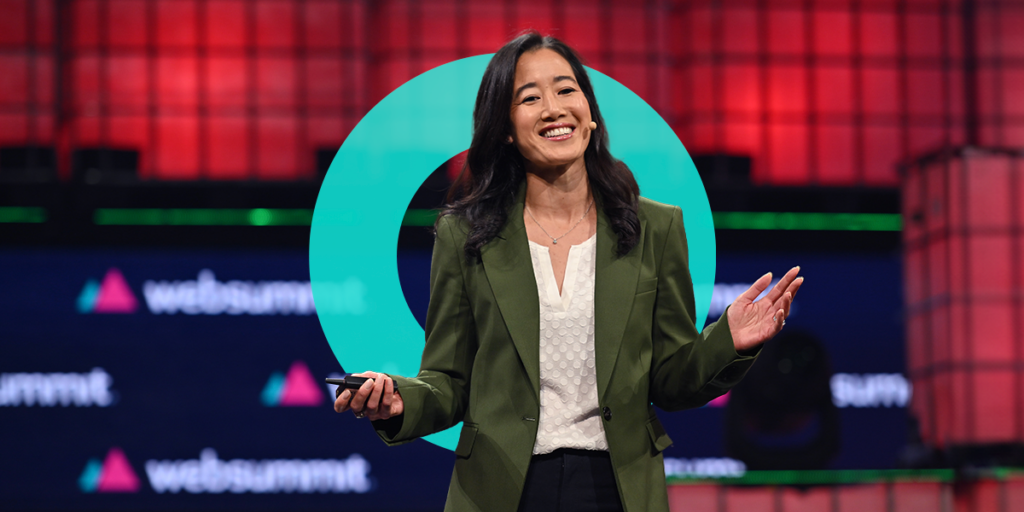 Microsoft chief sustainability officer Melanie Nakagawa. Image: Tyler Miller/Web Summit (CC BY 2.0)
Microsoft chief sustainability officer Melanie Nakagawa. Image: Tyler Miller/Web Summit (CC BY 2.0)One might reasonably ask ‘how?’, considering the computational power required for expanded AI is already putting extreme pressure on emission-producing electrical grids.
Melanie was the first to acknowledge that this is a problem, stating that “next-gen AI comes with increased resource demands, and carbon-free electricity and efficiency will meaningfully impact demands on those emissions”.
But, argued Melanie, “AI has the power to unlock enormous possibilities in sustainability”.
The chief sustainability officer discussed examples from a recent demo in London, including AI-powered audio tech that can massively reduce municipal water loss and wastage, as well as an AI solution for reducing power loss across electrical grids, meaning that more can be produced with less.
Make sure not to miss out on Web Summit Qatar 2024. Get your ticket today.
Main image of Centre Stage at Web Summit 2023 in Lisbon: Ramsey Cardy/Web Summit (CC BY 2.0)

